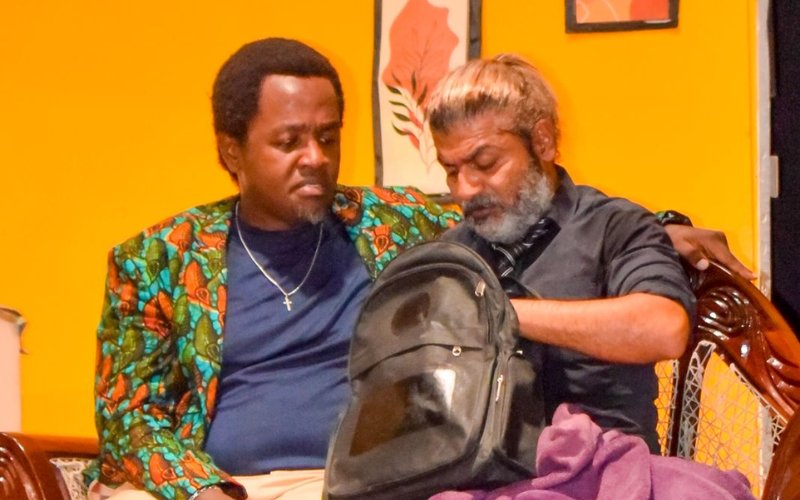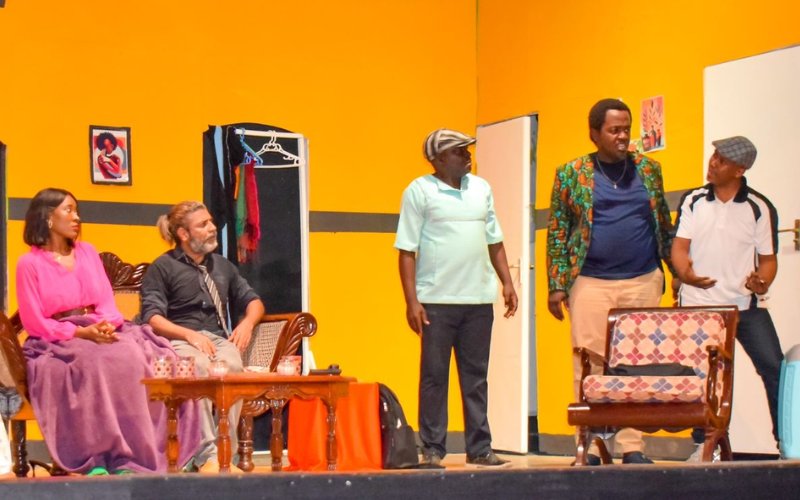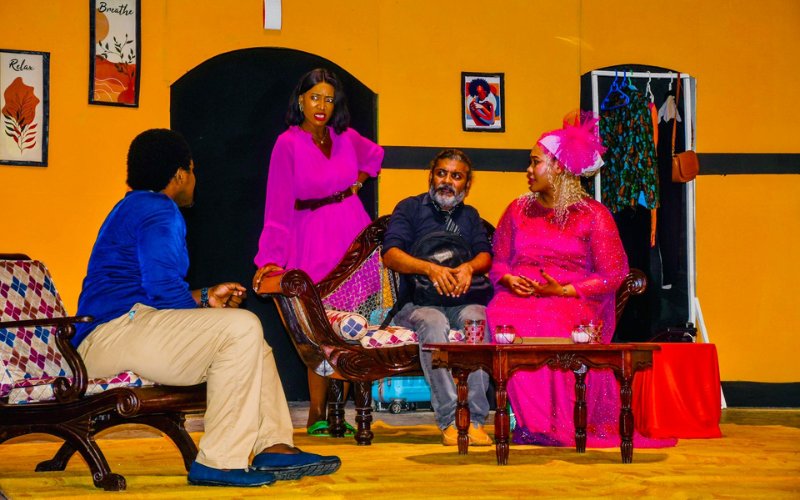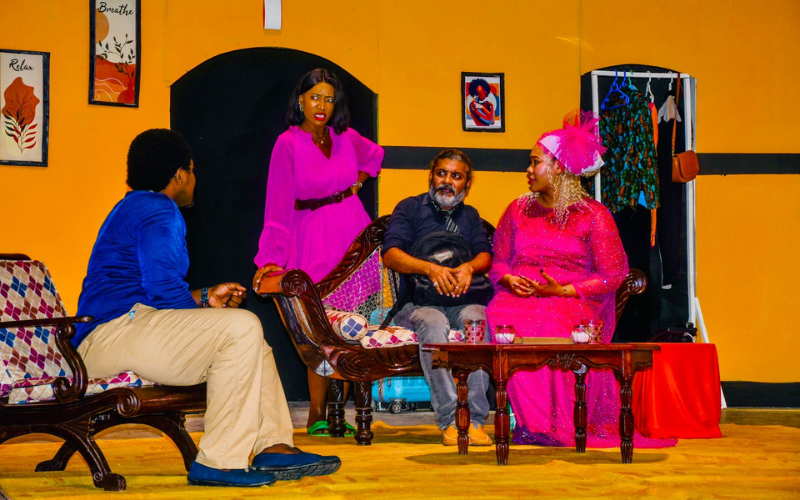On his birthday, a taxi driver stumbles into an unexpected surprise – a bag mistakenly swapped with a client’s, containing 735,000 dollars.
This is the predicament of a character in Abu ‘n’ Wass, a stage adaptation of the 1994 comedy farce Funny Money by Ray Cooney.
Abu ‘n’ Wass was staged on the evenings of August 29 and 30 at the Little Theatre Club by Pasha Productions.
When he gets home, Wass Bunda (played by Ashik Yusuf) tells his wife Mariam (Aisha Mwajumlah) that they must leave Mombasa for New York before the bag’s owner finds them.
As he waits for a taxi, Inspector Mwanagu (Zia Levi) knocks on the door.

Startled, Wass assumes the inspector has discovered his secret, ending his dreams of a lavish life.
Instead, the inspector is investigating whether Wass had been soliciting at a bar earlier.
Wass comically admits to it—only to avoid drawing attention to his newfound fortune.
The bell rings again.
Detective Jinoko (Hillary Namanje) appears at the door, heightening the suspense.

The detective believes Wass is dead after recovering his documents from a man who was murdered and thrown into the ocean under Nyali Bridge—the actual owner of the money.
Seizing the chance to stay hidden, Wass lies once more about his identity.
His friend Abu Mwagoti (Peter Mbugua) and wife Anita Mwagoti (Ann Awuor) soon become entangled in the escalating web of lies.
Like Funny Money, Abu ‘n’ Wass is hysterical and fast-paced, keeping the audience on the edge of their seats.
Ann Awuor, also the play’s producer, explained that Pasha Productions staged it to stay true to their tradition of comedy farce adaptations.
Their previous show was The Tales of Abu ‘n’ Wass: It Took 4 ½ Minutes, a continuation of Funny Money featuring Peter Mbugua and Ashik Yusuf.

With Abu ‘n’ Wass, Mbugua and Yusuf explored cultural adaptations by weaving in local settings and current events to make the play more relatable to Kenyan audiences.
As director, Mbugua leaned on stage movements for comedic effect—and it worked.
“The comedy in Funny Money is not in the script but in the stage movements. We focused on that and on pace to throw the audience into fits of laughter. If we focused on dialogue alone, we would have lost much of the humour,” said Awuor.
One of their biggest challenges was scheduling, as the seasoned performers who made up most of the cast had to juggle other productions.
Still, Awuor noted that their approach to comedy farce adaptations continues to offer fresh experiences to audiences in Mombasa’s diverse theatre scene.


